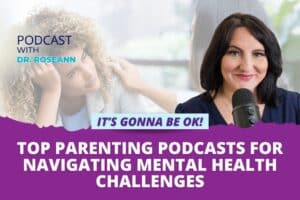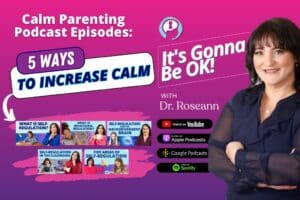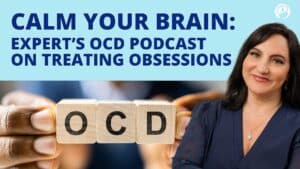Did you know that ADHD, a chronic neuropsychiatric condition, is recognized as a disability that may qualify for benefits, accommodations, and support? In this blog post, we will explore the world of “is ADHD a disability”, covering its symptoms, legal recognition, and the processes to access benefits and accommodations in various aspects of life. Let’s dive in!
Key Takeaways
- ADHD is legally recognized as a disability under federal law, allowing individuals to access disability benefits.
- ADHD is classified as a disability when symptoms interfere with daily activities and impair functioning.
- Students and adults affected by ADHD have educational rights, accommodations in the workplace, and may qualify for legal recognition of their condition through consultation with qualified healthcare professionals.
Understanding ADHD as a Disability
Attention Deficit Hyperactivity Disorder (ADHD) affects approximately 4% of adults and many children worldwide, causing significant challenges in their daily lives. ADHD is a chronic neuropsychiatric condition that can impact a person’s ability to function effectively in various settings, such as school, work, and social situations.
ADHD is recognized by the Social Security Administration and the Americans with Disabilities Act (ADA) as a disability. Therefore, people affected by ADHD are able to receive ADHD disability benefits from these organizations.
Definition and Symptoms of ADHD
ADHD is characterized by inattention, hyperactivity, and impulsivity, which can range from moderate to extreme and impact daily functioning. ADHD children may exhibit difficulties in concentrating, staying seated for extended periods, and controlling impulsive behavior, often leading to challenges in their learning abilities. Adults, on the other hand, may experience similar symptoms, but these may manifest differently, such as extreme restlessness or exhausting others with their activity.
Despite the prevalence of ADHD symptoms among many children and adults, it’s worth noting that not all instances merit classification as a developmental disability. However, when ADHD symptoms significantly impede a person’s performance at school or in the workplace, ADHD a disability may be recognized as a developmental disability in accordance with the ADA.
What Type of Disability is ADHD: Legal Recognition of ADHD as a Disability
ADHD is legally acknowledged as a disability under the federal law, such as the Americans with Disabilities Act (ADA) and the Rehabilitation Act of 1973 (Section 504). These laws provide legal protection to individuals with disabilities from discrimination. To be considered a protected disability under the ADA, ADHD must be severe enough to impede a person’s capacity to work or engage in the public sector. Bear in mind that not all ADHD cases will fall under ADA protection; the condition’s severity must substantially hinder daily functioning.
For individuals with severe ADHD, the ADA mandates that employers with 15 or more employees provide “reasonable accommodations” to help them succeed in the workplace. These accommodations may include modified work schedules, additional breaks, or the provision of organizational tools to help manage ADHD symptoms.
When Does ADHD Become a Disability?
ADHD is classified as a disability when its symptoms significantly affect routine activities like school, work, or social interactions.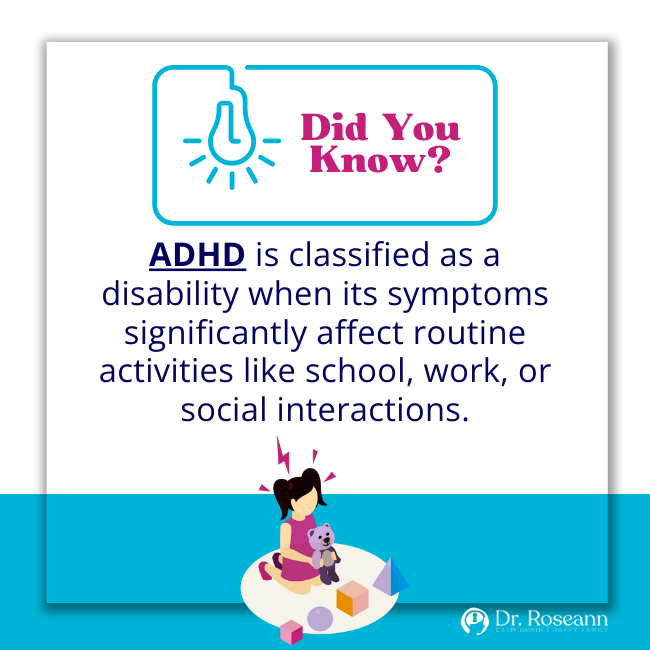
To assess the severity of ADHD and determine if it qualifies as a disability, healthcare professionals may use rating scales and interviews, along with the diagnostic criteria outlined in the DSM-5.
Ultimately, the severity of ADHD is classified as mild, moderate, or severe, depending on the extent to which it interferes with daily functioning and impairs a person’s ability to engage in various aspects of life.
One must comprehend that the significant impact of ADHD on daily functioning can start in early childhood and persist through adolescence and adulthood. Generally, symptoms manifest before the age of 6 and must have originated before the age of 12 for a diagnosis to be made.
Qualifying for Disability Benefits with ADHD
Adults and children with severe ADHD may qualify for disability benefits, but they must meet specific criteria and follow a strict application process. For children, the criteria involve demonstrating extreme limitations in one of the following areas or a severe limitation in two, which could be indicative of severe ADHD symptoms:
- acquiring and using information
- attending and completing tasks
- interacting and relating with others
- moving about and manipulating objects
- caring for oneself.
For adults, the process entails proving their inability to perform substantial gainful activity for at least a year and working with a knowledgeable lawyer to ensure their application for benefits is comprehensive.
Adult ADHD and Social Security Disability
Adults with severe ADHD may be eligible for Social Security Disability benefits. However, to qualify, they must demonstrate their inability to engage in substantial gainful activity for a period of at least one year. Working with a qualified attorney during the application process is crucial to ensure that all necessary documentation and medical evidence are provided to the Social Security Administration.
The process of applying to receive disability benefits through Social Security Disability Insurance can be intricate and daunting. Hence, it’s advisable to work with a seasoned lawyer who can assist in navigating the process and building a strong case for deserved benefits.
Child ADHD and Supplemental Security Income
Children with ADHD may be eligible for Supplemental Security Income (SSI) if they meet stringent disability and income criteria. SSI is a program that provides financial assistance and healthcare services to children with disabilities from families with low income and assets. These benefits can offer invaluable support to families caring for a child with ADHD and help them access necessary resources and services.
To apply for SSI for a child with ADHD, parents can contact the national toll-free service at 1-800-772-1213 or visit their local Social Security office. Detailed documentation and evidence from mental health professionals and teachers will be required to demonstrate the child’s eligibility for benefits.
Does an ADHD diagnosis mean you automatically get those benefits?
A prevalent misconception is that an ADHD diagnosis instantly qualifies one for disability benefits. However, an ADHD diagnosis alone does not guarantee disability benefits; functional impairments and specific criteria must be met. The Social Security Administration evaluates the severity of ADHD for disability benefits by assessing whether the symptoms are severe enough to prevent an individual from working.
To ensure an accurate diagnosis and substantiate a disability benefits claim, consultation with a competent healthcare professional is vital. Remember, each case is evaluated on a case-by-case basis, and the determination for benefits will depend on the severity of the condition and the extent to which it impacts daily functioning.
ADHD and Educational Rights
For students with ADHD, there are educational rights and accommodations available to help them succeed in school. The Individuals with Disabilities Education Act (IDEA) safeguards students with ADHD by providing them with special education services and accommodations.
Additionally, Section 504 of the Rehabilitation Act of 1973 is a federal civil rights statute that protects students with disabilities, including ADHD, from discrimination in educational institutions and ensures they receive necessary accommodations and services to meet their educational needs.
Understanding the legal rights and accommodations available for students with ADHD can empower parents and educators to work together to create an inclusive and supportive environment that fosters academic success for these students.
School Accommodations for ADHD Students
There are various accommodations available for students with ADHD to help them succeed in school without the dangerous side effects of medication. These accommodations may include extended time on tests, preferential seating, and additional support from teachers. The 504 plan, covered under Section 504 of the Rehabilitation Act, is an individualized document designed to provide accommodations and support to aid students with ADHD in accessing learning and succeeding in school.Behavioral intervention is also a critical aspect of school accommodations for students with ADHD. It involves the implementation of strategies and techniques to address the behavioral challenges associated with ADHD and promote positive behaviors, ultimately helping students thrive academically.
School Accommodations for Teens or College Students with a 504
- Extended Time:
- Additional time on tests, homework and assignments.
- Testing Accommodations:
- Quiet testing locations.
- Breaks during exams.
- Organizational Assistance:
- Use of planners or digital organization tools.
- Assignment checklists.
- Note-taking Support:
- Peer note-takers.
- Access to instructor's notes or presentations.
- Seating Arrangements:
- Preferential seating near the front or away from distractions.
- Instructional Modifications:
- Clear, concise instructions.
- Visual aids and hands-on learning opportunities.
- Technology Use:
- Use of laptops or tablets for note-taking.
- Access to assistive technology.
- Assignment Modifications:
- Breaking down assignments into smaller tasks.
- Alternate assignment formats.
- Flexible Attendance:
- Adjusted attendance requirements when needed.
- Tutoring and Academic Support:
- Access to tutoring services.
- Study groups or peer support.
Here is a school accommodation plan example for ADHD. For more school accommodations for students with ADHD and other clinical issues, download our free guide.
Navigating the IEP Process
The process of obtaining an Individualized Education Program (IEP) for a child with ADHD involves several steps, including requesting an evaluation, conducting the evaluation, determining eligibility, and developing and implementing a plan to help the child succeed in school.
To request an IEP evaluation for your child, it is crucial to submit a written request to the school principal, articulate your concerns, and provide any pertinent documentation or assessments that support your request.
Working in conjunction with the school, parents can develop an IEP that encompasses specific accommodations, modifications, and support services tailored to the child’s needs. An IEP not only provides a roadmap for a child’s academic success, but it also helps ensure that their unique behavioral, social, and emotional needs are met and that they receive the necessary support to thrive in their educational environment.
Workplace Accommodations for Adults with ADHD
Workplace accommodations can greatly enhance the job performance of adults with ADHD. Under the ADA, adults with ADHD may receive workplace accommodations such as modified work schedules, additional breaks, and organizational tools to help manage their symptoms. These accommodations can help individuals with ADHD maintain focus, manage their time, and stay organized, ultimately contributing to their success in the workplace.
Possible Workplace Accommodations for ADHD and Mental Health:
- Modified Work Schedules:
- Flexible start and end times.
- Adjusted lunch and break times.
- Additional Breaks:
- Short, frequent breaks to manage fatigue and maintain focus.
- Organizational Tools:
- Providing software or apps for time management and organization.
- Supplying physical organizers, planners, or checklists.
- Workspace Modifications:
- Quiet workspace away from distractions.
- Use of noise-canceling headphones or privacy screens.
- Task Management:
- Clear, written instructions and feedback.
- Use of electronic reminders and alarms.
- Support and Training:
- Access to coaching or training on organizational skills.
- Peer support groups or mentorship programs.
- Technology Utilization:
- Use of assistive technology like text-to-speech software.
If an adult with ADHD finds that their mental health symptoms are hindering their ability to effectively carry out their job duties, they may wish to discuss their diagnosis with their employer or the individual in the human resources department to evaluate if any adjustments can be made. Open communication and collaboration with employers can help create a supportive work environment that caters to the unique needs of individuals with ADHD.
Diagnosing and Managing ADHD
Pursuing a professional ADHD diagnosis for adults or children with ADHD is paramount as it enables individuals to garner the necessary support and accommodations to effectively manage their condition. A thorough evaluation by a healthcare provider is necessary to diagnose ADHD and determine eligibility for social security disability benefits. It is essential to consult with qualified healthcare professionals, such as:
- Psychiatrists
- Psychologists
- Pediatricians
- Family doctors
Seeking a Professional Diagnosis
Acquiring a professional ADHD diagnosis entails a comprehensive assessment encompassing an exhaustive evaluation of symptoms, medical history, and a psychological examination. Healthcare professionals may use various tools such as a QEEG Brain Map, self-report questionnaires, rating scales, and behavioral assessments to aid in the diagnosis. It is essential to provide detailed information about the onset, duration, and severity of symptoms, as well as any history of treatment or interventions, to ensure an accurate diagnosis.
After receiving a diagnosis, it’s imperative to collaborate with healthcare providers to establish a personalized treatment strategy that tackles both ADHD symptoms and any concurrent mood disorders. This may include medication management, therapy, and lifestyle modifications to help manage the challenges associated with ADHD and improve overall functioning.
ADHD and Co-Occurring Disorders
ADHD is often associated with other disorders such as learning disabilities, mood disorders, depression, anxiety, and bipolar disorder.
Research has shown that nearly 38% of adults with ADHD also have a mood disorder, which can exacerbate the symptoms and challenges related to ADHD (Katzman et. al, 2017).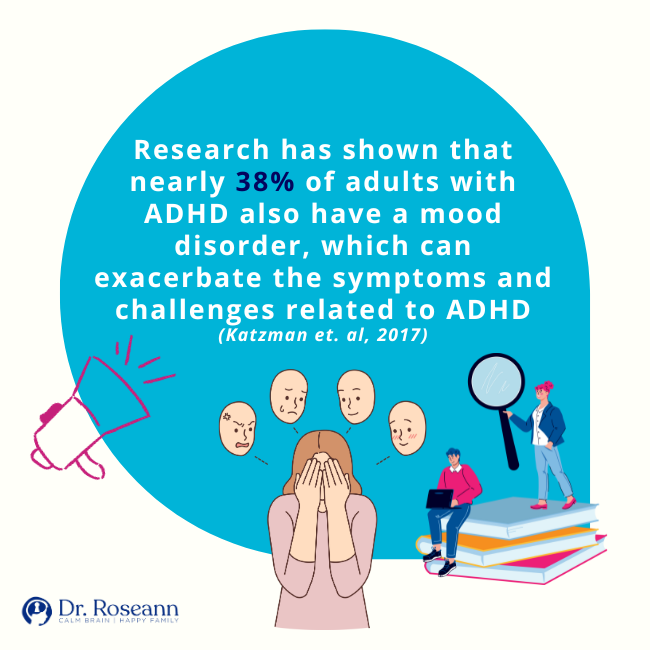
Addressing both ADHD and mood disorders in treatment plans is crucial to effectively manage symptoms and improve daily functioning.
Understanding the relationship between ADHD and clinical issues such as mood disorders can help individuals develop a comprehensive treatment plan that encompasses:
- Neurofeedback
- Nutrition and Supplements
- Magnesium
- Behavior therapy
- Skills training
- Counseling
- Other supportive services
So, Is ADHD Considered a Disability?
For some, yes. ADHD is a complex and often misunderstood condition that can significantly impact an individual’s daily functioning. Recognizing ADHD as a disability and understanding the resources and accommodations available can empower individuals with ADHD and their families to access the support they need to succeed in school, work, and daily life.
By seeking a professional diagnosis, understanding the relationship between ADHD and mood disorders, and working with healthcare providers and support systems, individuals with ADHD can better manage their condition and lead fulfilling lives.
Frequently Asked Questions
Does ADHD qualify as a disability with social security benefits?
Does ADHD count as a disability is a question I get all the time. While ADHD qualifies as a disability under the ADA and other organizations, you still need to qualify for benefits. To qualify for social security disability benefits, an individual's ability to work or learn must be impaired from living with ADHD.
What jobs does ADHD disqualify you from?
Jobs that require complex project management, some management roles, and those with minimal support from a team or supervisor can be difficult for people with ADHD due to potential distraction.
Is ADHD a form of Autism?
No, ADHD is not a form of Autism. Both are neurological conditions, but they have distinct differences. They do, however, share some common symptoms and having one can increase the likelihood of having the other.
What accommodations are available for students with ADHD?
Students with ADHD can receive accommodations such as extended time on tests, preferential seating, and support from teachers, to ensure their learning success.
How can adults with ADHD access workplace accommodations?
Adults with ADHD can access workplace accommodations by discussing their diagnosis with their employer or HR department to evaluate what adjustments can be made.
Citations
Katzman, M. A., Bilkey, T. S., Chokka, P. R., Fallu, A., & Klassen, L. J. (2017). Adult ADHD and comorbid disorders: clinical implications of a dimensional approach. BMC psychiatry, 17(1), 302. https://doi.org/10.1186/s12888-017-1463-3
U.S. Department of Education. (2016). Parent and Educator Resource Guide to Section 504 in Public Elementary and Secondary Schools. Retrieved from https://www2.ed.gov/about/offices/list/ocr/docs/504-resource-guide-201612.pdf
U.S. Social Security Administration. Retrieved from: https://www.ssa.gov/ssi/text-info-ussi.htm
U.S. Social Security Administration. Child Fact Sheet. Retrieved from: https://www.ssa.gov/disability/disability_starter_kits_child_factsheet.htm
Are you looking for SOLUTIONS for your struggling child or teen?
Dr. Roseann and her team are all about science-backed solutions, so you are in the right place!
Grab your complimentary copy of
School Accommodations Guide
You can get her books for parents and professionals, including: It’s Gonna Be OK™: Proven Ways to Improve Your Child’s Mental Health, Teletherapy Toolkit™ and Brain Under Attack: A Resource For Parents and Caregivers of Children With PANS, PANDAS, and Autoimmune Encephalopathy.
If you are a business or organization that needs proactive guidance to support employee mental health or an organization looking for a brand representative, check out Dr. Roseann’s professional speaking page to see how we can work together.
Dr. Roseann is a Children’s Mental Health Expert and Licensed Therapist who has been featured in/on hundreds of media outlets including The Mel Robbins Show, CBS, NBC, PIX11 NYC, Today, FORBES, CNN, The New York Times, The Washington Post, Business Insider, Women’s Day, Healthline, CNET, Parade Magazine and PARENTS. FORBES called her, “A thought leader in children’s mental health.”

She coined the terms, “Re-entry panic syndrome” and “eco-anxiety” and is a frequent contributor to media on mental health.
Dr. Roseann Capanna-Hodge has three decades of experience in working with children, teens and their families with attention-deficit hyperactivity disorder (ADHD), autism, concussion, dyslexia and learning disability, anxiety, Obsessive Compulsive Disorder (OCD), depression and mood disorder, Lyme Disease, and PANS/PANDAS using science-backed natural mental health solutions such as supplements, magnesium, nutrition, QEEG Brain maps, neurofeedback, PEMF, psychotherapy and other non-medication approaches.
She is the author of three bestselling books, It’s Gonna Be OK!: Proven Ways to Improve Your Child's Mental Health, The Teletherapy Toolkit, and Brain Under Attack. Dr. Roseann is known for offering a message of hope through science-endorsed methods that promote a calm brain.
Her trademarked BrainBehaviorResetⓇ Program and It’s Gonna be OK!Ⓡ Podcast has been a cornerstone for thousands of parents facing mental health, behavioral or neurodevelopmental challenges.
She is the founder and director of The Global Institute of Children’s Mental Health, Neurotastic™Brain Formulas and Dr. Roseann Capanna-Hodge, LLC. Dr. Roseann is a Board Certified Neurofeedback (BCN) Practitioner, a Board Member of the Northeast Region Biofeedback Society (NRBS), Certified Integrative Mental Health Professional (CIMHP) and an Amen Clinic Certified Brain Health Coach. She is also a member of The International Lyme Disease and Associated Disease Society (ILADS), The American Psychological Association (APA), Anxiety and Depression Association of America (ADAA) National Association of School Psychologists (NASP), International OCD Foundation (IOCDF).
© Roseann-Capanna-Hodge, LLC 2023




